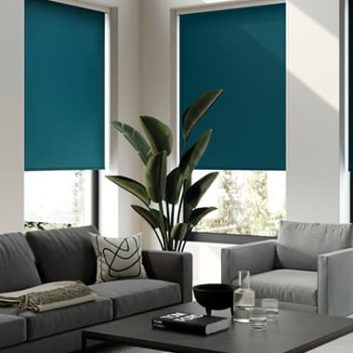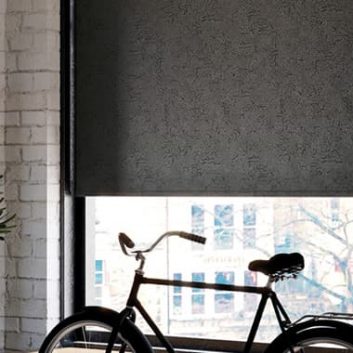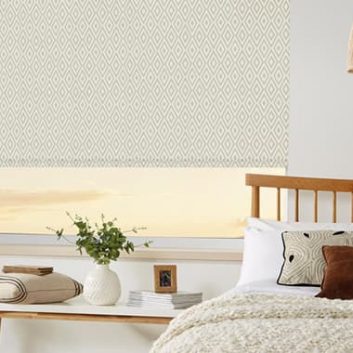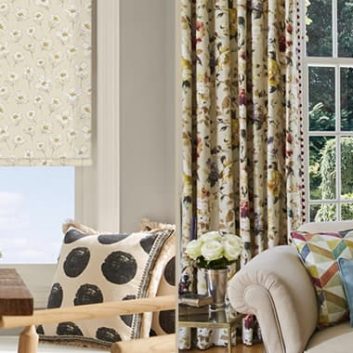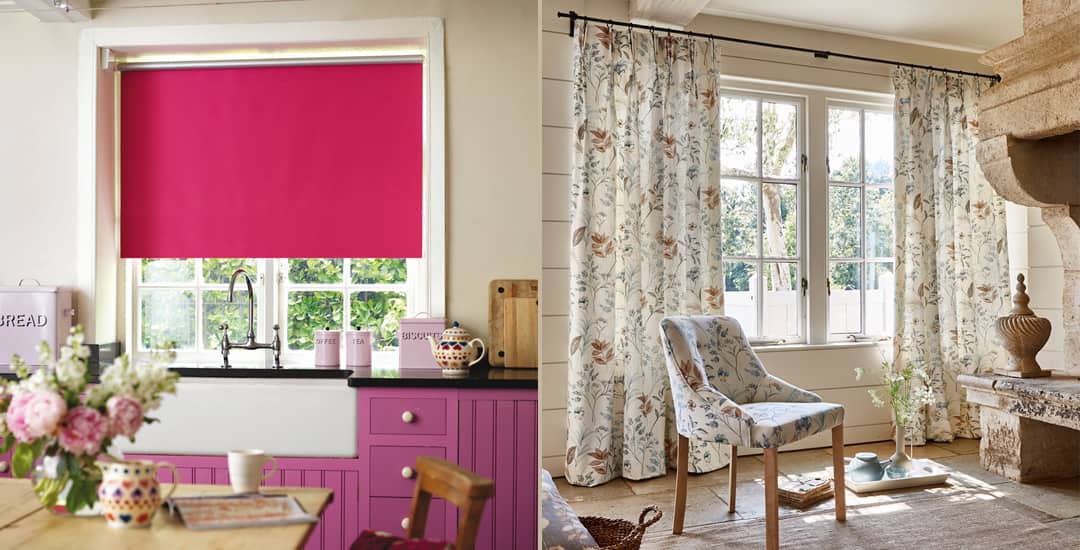
Is it better to have blinds or curtains? This is the type of question that when posted on social media, tends to result in a bunch of people responding with popcorn-eating memes in short order.
Yep, it’s one of “those” questions for which there is no one size fits all answer but my gosh, that’s not going to stop anyone from telling you what they think on the matter.
Blinds vs curtains then is generally down to personal choice in terms of the look you want to achieve and how much you’re willing or able to spend. There are a few situations in which a blind might be the obvious choice and curtains a poor one, and vice versa; but overall, “are blinds better than curtains” is a question of many parts, depending on where you’re putting them, what you want them to do, and anything you want to achieve or avoid.
With this in mind, this blog post will ask and answer various questions relating to “are blinds better than curtains” for certain things.
Contents:
- 1. Are blinds better than curtains if I’m on a budget?
- 2. Are blinds better than curtains if I’m planning to install them myself?
- 3. Is it better to have blinds or curtains in kitchens, bathrooms, and other potentially wet and humid rooms?
- 4. Is it better to have blinds or curtains if I want to block 100% of external light?
- 5. Is it better to have blinds or curtains if I want to filter light or retain my view without being observed from outside?
- 6. Is it better to have blinds or curtains if I am kind of messy, and/or have kids that are more than kind of messy?
- 7. Is it better to have blinds or curtains above a radiator?
- 8. Is it better to have curtains or blinds in a small room, or if space is at a premium?
- 9. Are blinds better than curtains for insulating a room and reducing sound pollution?
- 10. Is it better to have blinds or curtains for a really luxurious, opulent look?
- 11. Are blinds better than curtains for the widest range of choice?
1. Are blinds better than curtains if I’m on a budget?
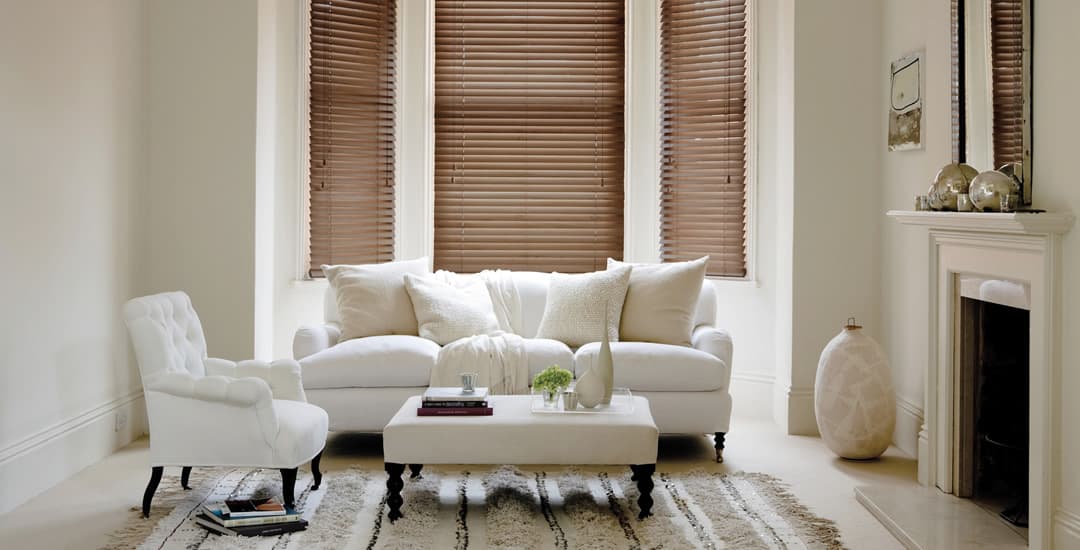
If funds are tight or particularly if you’re buying blinds for every window of your home, cost is almost certainly going to be a factor.
Now, it is entirely possible to pick up reasonably cheap readymade blinds and curtains alike from big retailers like Dunelm and Argos, which can narrow the price gap to a degree and keep costs down overall.
However, blinds are almost always less costly than curtains for the same window nonetheless; and really, buying either readymade curtains or blinds (should you be able to find a set of either to fit your specific window) is something of a false economy in the longer term, as they don’t tend to last very long compared to made-to-measure alternatives.
If you are willing to invest in better quality and so, a longer lifespan for your blinds or curtains but are mindful of the spend nonetheless, made-to-measure blinds are less costly than equivalent quality made-to-measure curtains, and can represent quite a big saving for any decorating project.
2. Are blinds better than curtains if I’m planning to install them myself?
These days, you’d be fairly hard-pressed to find someone to hire to hang a set of either curtains or blinds for you, as both forms of window dressing are largely designed and sold with the intention that their buyer can hang them on their own without any specialist tools or skills.
When it comes to how complicated it is to hang blinds vs curtains, blinds of all types are really quick and simple to install. While many types of curtains are straightforward enough too, this is not the case for all of them. Some curtains require a batten to be fitted first, plus you have to adjust the curtains, space the hooks or rings/other materials and so on, and potentially construct the rail itself too.
In particular, when it comes to curtains vs blinds for bay windows, curtains can be a real pain to measure for and fit/hang compared to blinds!
3. Is it better to have blinds or curtains in kitchens, bathrooms, and other potentially wet or humid rooms?
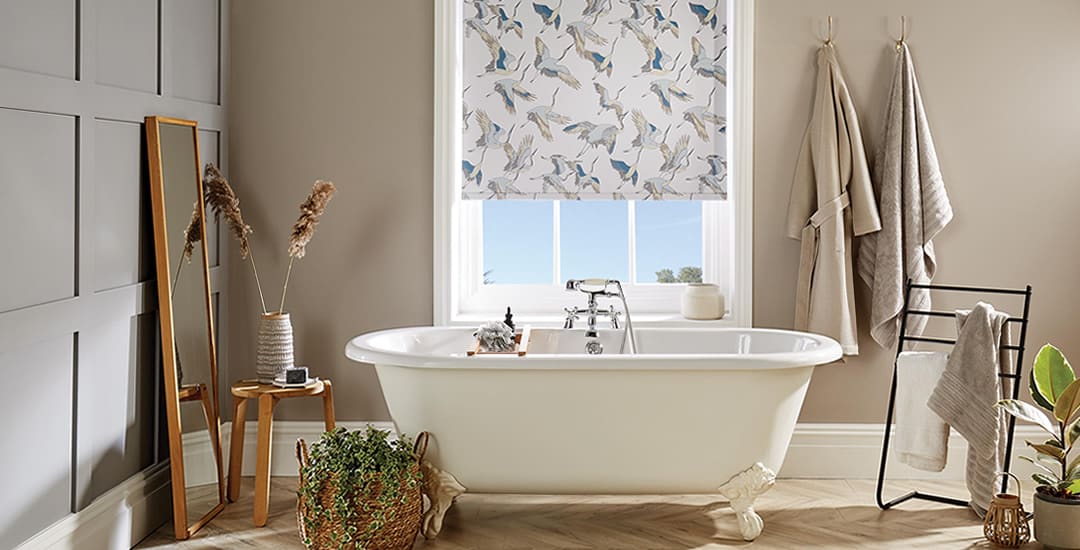
For rooms where actual water (such as a sink or bath) is likely to be window-adjacent and/or there will regularly be a lot of humidity in the air (or even generally high moisture levels, such as in damp rooms or those that don’t get aired out a lot) your best bet is blinds.
Blinds of nearly all types (with the exception of Roman blinds and real wooden blinds) can either be made in waterproof fabrics or are innately waterproof by nature, while waterproof curtains are not a thing; apart from uh, shower curtains, which are neither a very thermally efficient nor particularly classy way to adorn your outside-facing windows.
Using curtains in humid or wet rooms will quickly result in any or all of the following happening to them: tidemarks appearing on the fabric, the fabric losing its form, mould and mildew growing, a funky smell developing, and so on. All of this may well apply too for curtains hung over windows that get heavily condensated, even if the room they’re in isn’t particularly humid.
4. Is it better to have blinds or curtains if I want to block 100% of external light?
Now this is potentially a contentious one! Both curtains and blinds can be made in blackout fabrics. However, light can escape around the sides of either a blind or a curtain depending on how it is hung.
Many if not most blackout blinds hung over (rather than in) a window recess will block nearly all external light, and many hung within the recess will do the same. However, blackout curtains hung over the recess do have the edge in this respect.
Blackout curtains hung over the window recess will tend to be highly effective too, albeit if you manage to leave a little gap (often at the top) when you close them on any given night, you won’t know about this until the next morning, when it is too late and the sun is using it as an entry route to your slumbering eyelids. This issue does not arise with blinds.
If you want to play it really, really safe, a popular choice is a blinds-curtains fusion, consisting of a blackout blind hung in the window recess and a pair of blackout curtains hung over it.
5. Is it better to have blinds or curtains if I want to filter light or retain my view without being observed from outside?

If you want to filter light – such as to take the edge off a bright day, or to deflect glare from a TV or PC screen; and/or you want to be able to see out without allowing people “out” to also be able to stare in, only blinds possess such dual-pronged superpowers.
Specifically, Venetian, wood, faux-wood, vertical, and day and night blinds. All of these blind types are adjustable so that you can filter light, and allow you to enjoy the view while also managing your privacy.
Curtains have two settings: Open, or closed, and that’s it. Leaving them half open will look scruffy, and also not really fulfil both the letter and the spirit of the goal.
6. Is it better to have blinds or curtains if I am kind of messy, and/or have kids that are more than kind of messy?
Curtains are made of fabric; many different types are available for this, and some will be machine washable and/or stain resistant. However, none of them can simply be wiped clean nor made of a material that definitely won’t absorb like, ketchup or wine (for the toddler and for you respectively, the former often leading to the latter).
Many types of blinds – basically, any waterproof types such as faux wood blinds, and rollers and vertical blinds made in waterproof fabrics – can be wiped clean, making blinds by far the simpler and easier-to-care-for choice if you’re expecting mess.
Now, we do strongly recommend that you clean your blinds regularly to keep them working properly, even if they’re not covered in spaghetti hoops – but all this involves in most cases is a quick doodle with a duster. Curtains, on the other hand, need to be taken down to be washed or more commonly, dry cleaned.
7. Is it better to have blinds or curtains above a radiator?
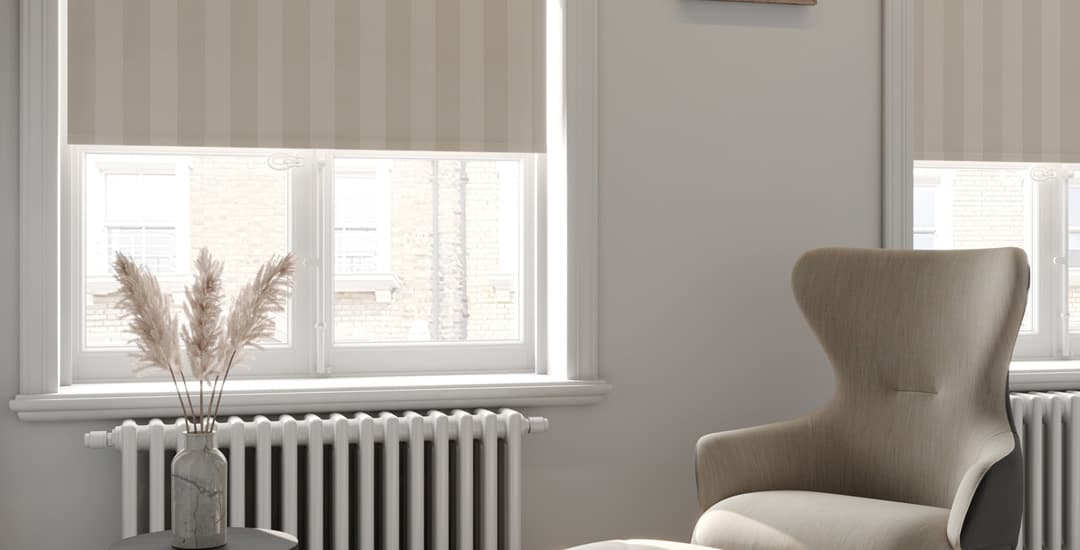
If your window is directly above a radiator, placing curtains over the window (even windows that stop above the top of the radiator) will often form a sort of chimney that draws the rising heat from the top of the radiator, and shoots it at the cold glass of the window.
This effect prevents the radiator from really warming the room up, and also means you’re burning a significant amount of your heating spend on warming up the great outdoors… At no benefit to you, and certainly no benefit to the planet.
This means that blinds are better above a radiator to keep your heating spend inside of the house.
8. Is it better to have curtains or blinds in a small room, or if space is at a premium?
Curtains take up more space than blinds; and this means both that a pair of curtains can overwhelm a smaller room, and that curtains might actually take up valuable space in the room itself if the room is really teeny tiny.
9. Are blinds better than curtains for insulating a room and reducing sound pollution?
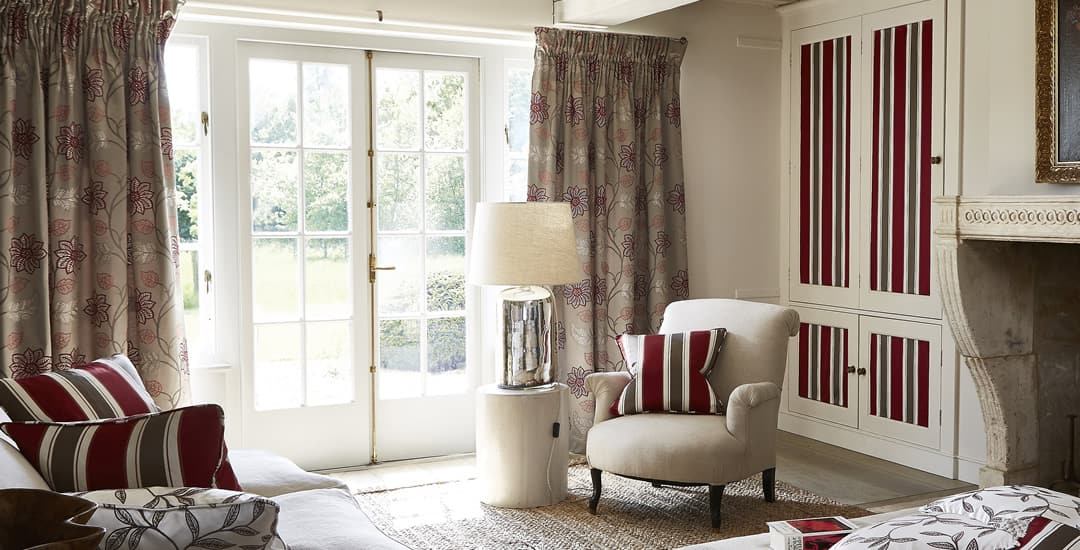
No, curtains generally have the lead here, particularly if you choose good quality ones designed to offer additional insulation. Most types of blinds will also make a marked positive difference to the energy efficiency of the room they’re used in, and will generally help to block draughts and muffle sounds from outside to some degree too.
But overall, thermally efficient curtains will be slightly more effective in these areas.
10. Is it better to have blinds or curtains for a really luxurious, opulent look?
Generally, a very grand and imposing pair of curtains made of heavy and luxurious fabrics will have more presence and draw the eye more effectively than a blind with the same goals, if this is your intention.
Curtains can usually be crafted to look more opulent and also somewhat softer than blinds; although it is certainly worth making the case for Roman blinds here too, themselves being designed to be eye-catching, premium window coverings crafted from luxurious fabrics, often the same ones that higher-end curtains are made from.
You can also take a “best of both worlds” approach or double down on the impact by hanging a Roman blind inside of the window recess, and a pair of luxurious curtains outside of it!
11. Are blinds better than curtains for the widest range of choice?
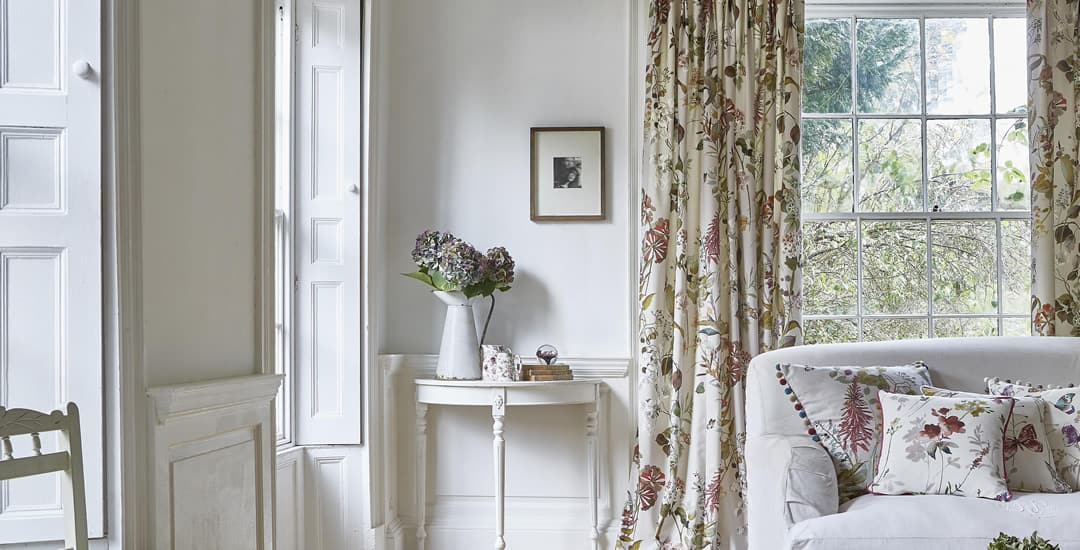
Finishing with the broadest topic area then, this is a question in two parts really.
In terms of the number of types or styles that you can find for blinds vs curtains in respectively, blinds have the lead. Different blind types look very different from each other – think of a Roman blind versus a wooden blind versus a vertical blind, for instance.
While curtains come in different styles too, these are effectively limited to the curtain headers, in the form of appearances such as pencil pleats, eyelets, and the presence or absence of pelmets and so on. Overall, the number of different types and finishes that curtains come in, and how distinctive they are from each other, is a far narrower range than is the case for blinds.
However, when it comes to the widest range of choices in terms of the materials, colours, finishes, patterns, and designs you can have on the fabrics of blinds vs curtains, curtains are way out ahead.
Not only can curtains be made from a far broader spectrum of fabrics ranging from sheer voiles to velvets and beyond, but curtains beat blinds hands down in terms of the number of colours and designs they’re offered in.
Blinds aren’t exactly limiting in terms of styling, and it is entirely possible to get more than overwhelmed by the sheer range of options you can choose from for a blind; but whereas blinds may come with hundreds of options for colour and design, curtains in their turn would have thousands.

